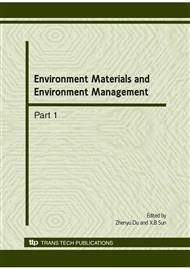p.243
p.250
p.254
p.259
p.263
p.267
p.272
p.276
p.280
The Game Analysis of Negative Externality of Environmental Logistics and Government Regulation
Abstract:
This paper mainly discuss the negative externality problems involved in environmental logistics and the necessity of government regulation, and the government’s role in resolving negative externality. In the process of environmental logistics, around the interest distribution after the internalization of external cost, it exists a series of games among parties of logistics systems, including game between enterprises and environment, game between enterprises and game between government and enterprises. Through the analysis of game model, we conclude that environmental logistics cannot only rely on the market forces, the government should play a greater role. The economic incentives based on market are the most effective way to resolve negative externality and at the same time we should avoid rent-seeking behavior. The government should accelerate the process of environmental logistics in China by increasing the intensity of propaganda of environmental logistics, making evaluation standard of environmental logistics, carrying out financial subsidies on environmental logistics, and guiding enterprises participating the technology development of environmental logistics.
Info:
Periodical:
Pages:
263-266
Citation:
Online since:
June 2010
Authors:
Price:
Сopyright:
© 2010 Trans Tech Publications Ltd. All Rights Reserved
Share:
Citation:


